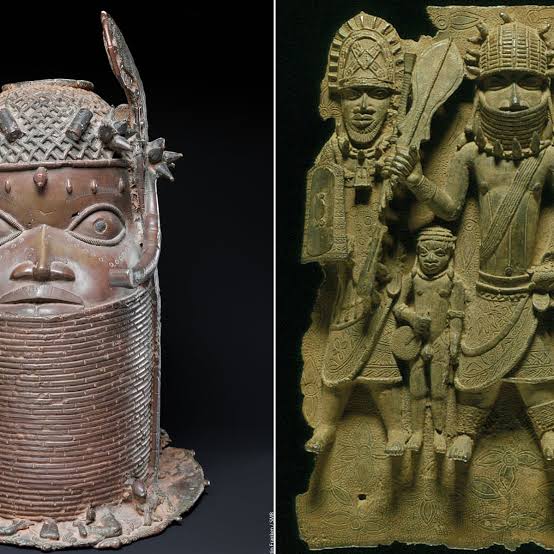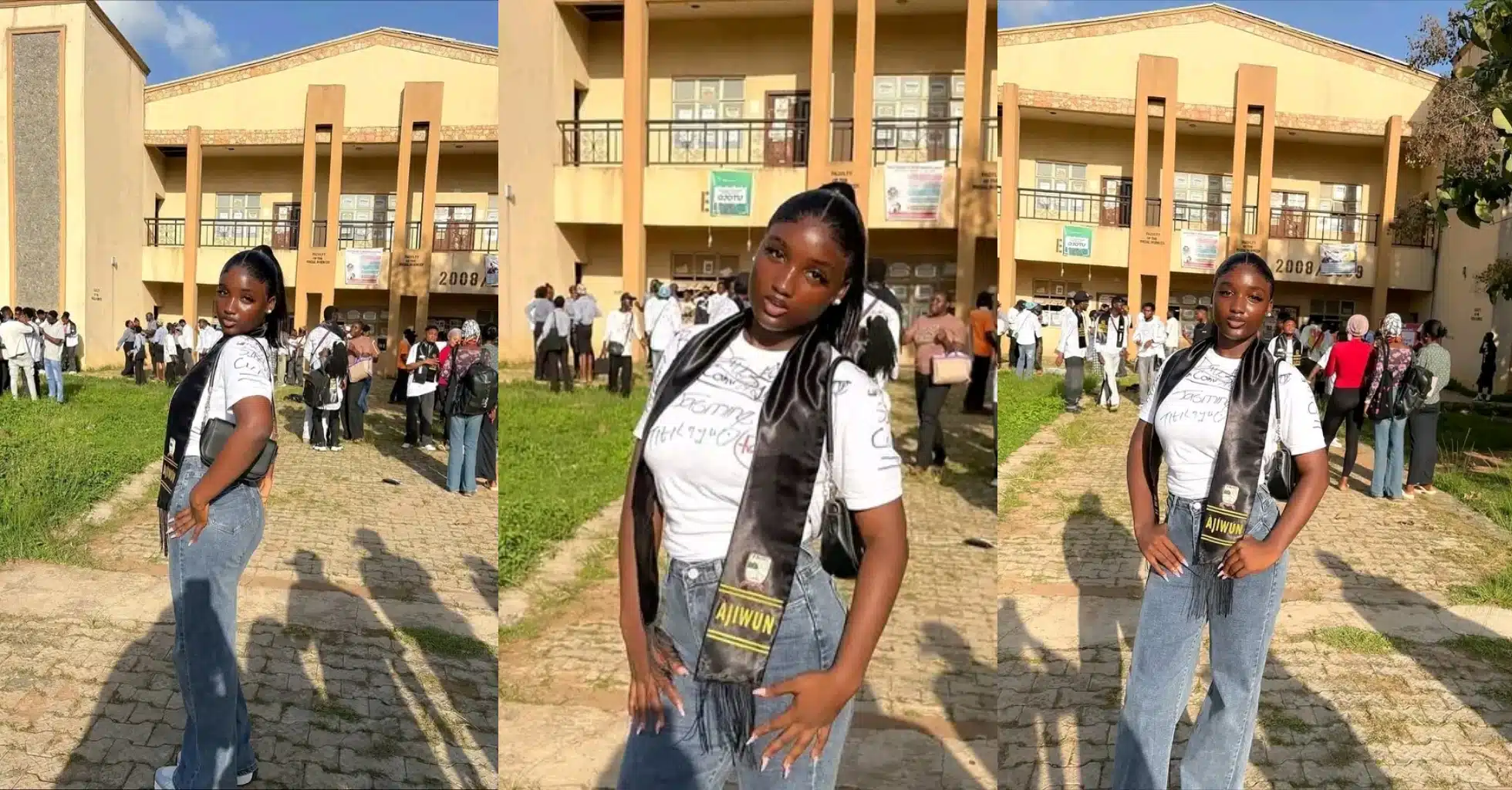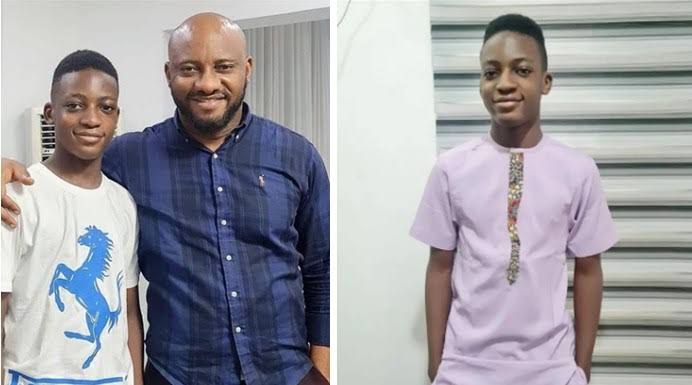
Twenty-one precious artifacts that were looted by British soldiers from the former west African kingdom of Benin 125 years ago have been handed over by Germany to Nigeria amid laughter, tears, and some audible frustration with the ongoing silence of the country that first stole them.
The objects from the haul of treasures known as the Benin bronzes, including a brass head of an oba (king), a ceremonial ada and a throne depicting a coiled-up python, were taken from the sacked city during a British punitive expedition in 1897 and later sold to German museums in Berlin, Hamburg, Stuttgart and Cologne.
Shortly after lunchtime on Tuesday, Germany’s foreign minister, Annalena Baerbock, passed perhaps the most spectacular of the returned objects into the gloved hands of Nigeria’s culture minister, Lai Mohammed.
The German foreign minister, Annalena Baerbock, and her Nigerian counterpart, Geoffrey Onyeama, at the handing over ceremony.
“She comes back to where she belongs,” Baerbock said as she handed over a miniature mask of the Iyoba (queen Mother), made of ivory and decorated with yellow glass pearls, red coral and a crown of stylised electric catfish, which was looted from the bedchamber of the last independent oba.
A sample of more than 1,000 Benin bronzes whose ownership Germany legally transferred to Nigeria on 1 July, the artworks were picked up by lorry from the museums, loaded into the cargo hold of a German air force plane at Cologne airport and then flown to Abuja, the capital of Nigeria, via Berlin on Sunday.
On Tuesday, the artworks were unwrapped and put on display on the back of a stage inside the wood-panelled conference hall at Nigeria’s foreign ministry.Other individual bronzes have already been returned to their country of origin: London’s Horniman Museum and Gardens last month handed over six objects from its collection to a Nigerian delegation, one of a handful of British institutions to take unilateral steps.
France’s president, Emmanuel Macron, who kickstarted a debate about restituting colonial objects to Africa five years ago, returned 26 objects in November 2021 from France’s Musée du quai Branly to the neighbouring republic of Benin, which is not linked to the former kingdom of Benin.
But these are the first Benin bronzes to be returned as part of a government delegation, peacefully completing a journey from European museums that Marvel’s 2018 Black Panther and blaxploitation movies of the 1980s had imagined would have to come by force.
Political leaders in Edo state expressed hope that Berlin’s move would create political momentum that would force the UK government to end its century-long silence on the subject.
Germany’s announcement in the summer drew critical questions from other European states, especially Britain. But on Monday, German foreign ministry officials said the apology by the Dutch prime minister, Mark Rutte, for the Netherlands’ role in the slave trade added to an impression of a converging EU stance on postcolonial issues.
“This is not the end of a process but the beginning,” said Germany’s culture commissioner, Claudia Roth. “It marks a turning point in international cultural policy.”
For Germany, the arrival of a dynamic young politician in the foreign ministry proved a catalyst for a return movement that had been agreed in principle during the Merkel era but had threatened to lose momentum.
“What would it mean for us to be deprived of our cultural heritage?”, Baerbock said in Abuja on Tuesday. “To not be able to marvel at the Gutenberg Bible in Mainz? To be unable to admire Martin Luther’s writings? To stand in front of a sculpture by Käthe Kollwitz in Berlin or at Goethe’s desk in Weimar? It evokes a sense of loss I can hardly imagine. To you here in Nigeria, however, this loss has been your reality.”The Benin bronzes that have returned to Nigeria are meant to be eventually put on display at a new pavilion in Benin City, which Germany is co-financing with €4m.
The pavilion is expected to be opened in 2024 and is supposed to form the apex of a new cultural centre that would support restitution projects in other African countries. Fundraising for a new Edo museum of west-African art, designed by the Ghanaian-British architect David Adjaye, is scheduled to start after the pavilion’s opening.






